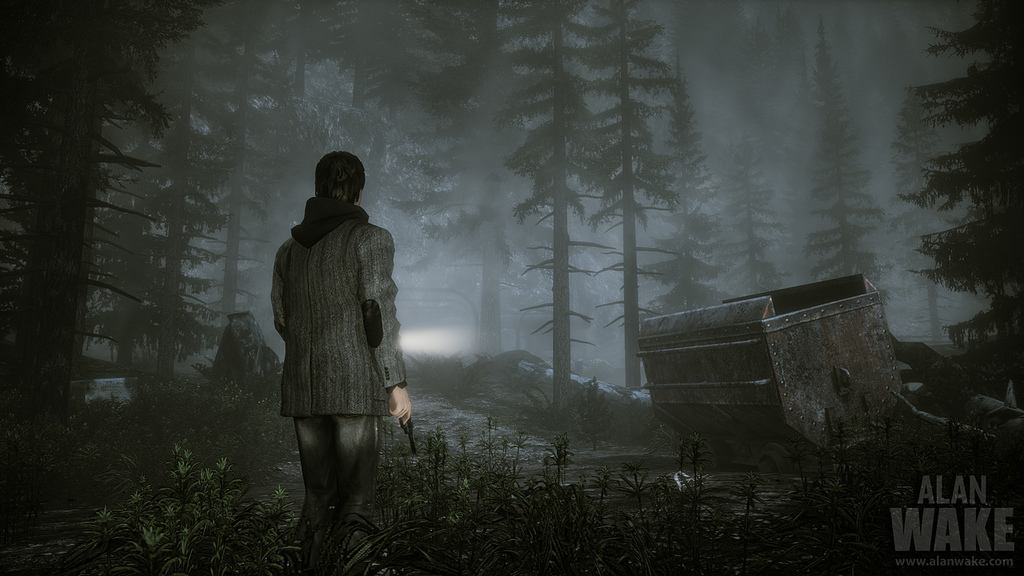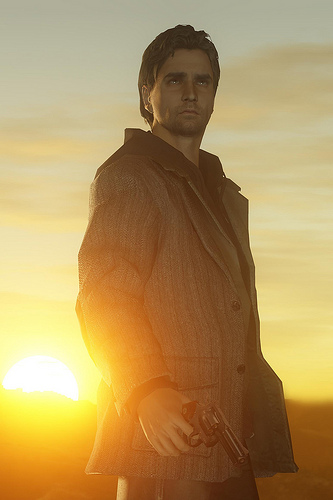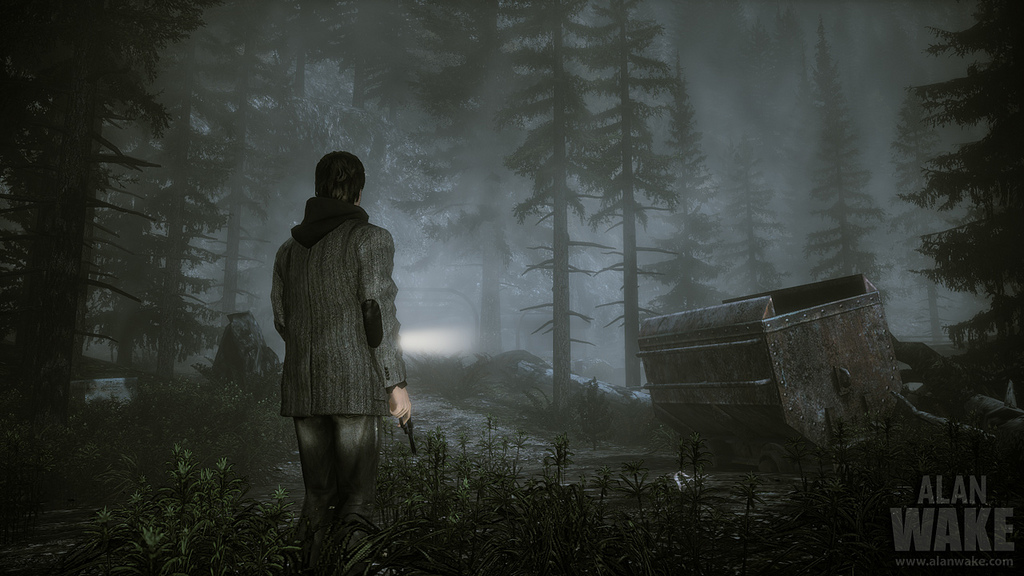
Editor's note: Mitchell explains to us how his fears usually turn him off of most "scary" games, but in the case of Alan Wake, they enhanced his experience. This is the first of several pieces Mitchell's writing for Bitmob.com in the coming weeks as he tries out for a staff spot, so please, check out and comment on his work. -Jason
I am afraid of children.
Not cute, spunky rugrats, mind you. I’m talking creepy kids — children who say things like “Come and play with us, Danny. Forever. And ever. And ever.” Yes, I’m a complete sissy, and no, it doesn’t take a lot to freak me out.
I don’t like tension when watching films or playing games. Suspense and scares ruin the good time I’m trying to have while kicking back on my couch. I understand that feeling afraid is exciting, but for me, it’s a negative sensation that exists independent from the experience at hand. If I’m freaked out, I’m distracted, and it breaks the illusion.
By that logic, I should've hated Alan Wake. Contrarily, it's one of my favorite games of this console generation. What pulled me close to the thriller is exactly what should have pushed me away. I fell in love with its terrifying focal point specifically because it tapped into what is genuinely my greatest fear.
I am afraid of the dark.
Darkness doesn’t scare me in the same way as corporeal manifestations of The Shining's murdered twins, either. You can measure fear on numerous levels, and my irrational, unexplainable aversion to darkness far outweighs the spookiness of the supernatural. Where Dead Space and Silent Hill: Shattered Memories use homely monsters and jump scares as a crutch, Alan Wake developer Remedy Entertainment is acutely aware that when you’re blind, you’re vulnerable, and the game exploits that weakness expertly.
 Similar to the titular hero's nyctophobic wife, Alice, I panic when the power goes out. Across Alan Wake's six chapters, the power constantly goes out. The game opens as Alice and Alan Wake arrive in the scenic, sunny, serene town of Bright Falls. Things naturally go south, and you wind up outside town, alone, and in the dark.
Similar to the titular hero's nyctophobic wife, Alice, I panic when the power goes out. Across Alan Wake's six chapters, the power constantly goes out. The game opens as Alice and Alan Wake arrive in the scenic, sunny, serene town of Bright Falls. Things naturally go south, and you wind up outside town, alone, and in the dark.
Much of the game's action takes place during the lightless evening, and it's here that the game's maniacal townsfolk, concealed in the shadows, eagerly wait to kill you. Even with the lights on, you're left open to attack by the darkness. What little time you spend safe beneath the security blanket of the sun invariably ends abruptly. Whether Alan's crashing his car or sipping on drugged drinks, the poor guy always wakes up on the wrong side of the clock. In the blink of an eye, Alan's daytime dies like someone cut the power.
Contributing to my uneasiness even further is one of the few means of spatial awareness: Wake's flashlight. Its power, too, frequently dips and dies. And when I watch the flashlight flicker and burn out, my heart starts racing. I hold my breath and seek refuge under the nearest street light's cone of welcoming light.
Yet despite the unnerving fear of it all, I never leave Alan Wake's world. My heightened distress doesn't pull me out of the experience as it normally would — it emphasizes how steeped in it I really am. Because I'm already apprehensive about entering the dark, I apply that anxiety to the protagonist's identity, and I feel the same emotions I suspect Alan feels. Personally, Alan Wake is an exhilarating and exciting emotional experience that's unrivaled in any other game I've played, film I've watched, or novel I've read.
Another significant reason for this is the idea of the darkness as a character. The sentience of "The Dark Presence," while conceptually horrifying to me, added to my enjoyment considerably. Its poltergeist-like abilities means you'll have plenty of inanimate objects hurled at your head, and its powers of possession guarantee hordes of eerie attackers. This gave me plenty of targets to take down. When the dark is a real-life fear, fighting back against the literal "powers of darkness" is empowering; through Alan Wake, I could confront and combat an otherwise intangible enemy without worrying about real-life consequences.
I'm uncomfortable with most horror because we passively sit back and let it exploit our emotions. I feel like a victim when I read thrillers or watch scary movies because frightening stuff is happening to me. Interacting with things that go bump in the dark is far more invigorating. Rarely do I get the chance to literally fight my fears with firearms. Remedy presents exactly that opportunity. Alan Wake wasn't the solution for my fear of the dark, but it certainly serves as a step in the right direction.


